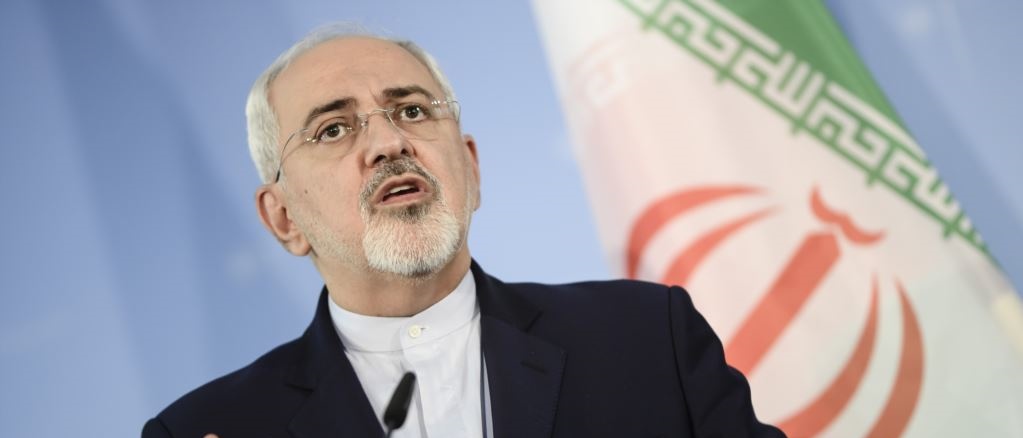What’s Iran’s next move?
May 4, 2018 | Expert Insights

Iran has made it clear that it will not enter re-negotiations with regards to the landmark 2015 nuclear deal.
US President Donald Trump had earlier given the other signatories until May 12th to “fix” the deal that he deemed was flawed.
Background
In the 2000s, reports began emerging on Iran running a uranium enrichment program in secret. An investigation by the IAEA revealed that Iran had not declared a number of its nuclear activities to the group. Thus, the nation was subjected to multiple harsh sanctions from the international community. This has cost the nation billions of dollars (estimated $100 billion in oil revenues alone till 2015). It has also lost out on foreign direct investment.
On 2 April 2015, the P5+1 and Iran reached a provisional agreement that sought to lift most of the sanctions in exchange for limits on Iran's nuclear programs extending for at least ten years. When the International Atomic Energy Agency (IAEA) certified that Iran had restricted its sensitive nuclear activities, the UN sanctions were lifted on January 16, 2016.
The United States and Iran do not have any formal diplomatic relations or ties. The two nations share an acrimonious relationship. In 2002, US President, George W Bush, referred to Iran as being part of the “axis of evil.”
US President Trump refused to certify Iran’s compliance with the deal in October last year. He directed his administration to “address the deal’s many flaws so that the Iranian regime can never threaten the world with nuclear weapons.” Additionally, in January this year, Trump announced that he would extend the waiver of sanctions until Europe and the US could fix the deal. Washington hopes for the European allies to commit to improving the deal by May, in return for which it would renew sanctions relief.
Analysis
Iran’s Foreign Minister, Javad Zarif, through a recorded message that has been posted on YouTube, has noted that the country will not renegotiate the deal. “Iran will not renegotiate what was agreed years ago and has been implemented,” he stated.
"If the US continues to violate the agreement, or if it withdraws altogether, we will exercise our right to respond in a manner of our choosing," he said referring to the Joint Comprehensive Plan of Action (JCPOA). He also rejected efforts to renegotiate the deal, saying: "We will neither outsource our security, nor will we renegotiate or add on to a deal we have already implemented in good faith."
He has also noted that if US walked away from the deal, Iran would consider it broken and begin its uranium enrichment programme. President Trump long has railed against the Iran nuclear accord as “insane” and the “worst ever,” even though it has successfully curbed Iran’s ability to develop or build a nuclear weapon since it went into effect in early 2016.
“If the IAEA is expelled, we will no longer have eyes and ears on what’s happening and may well face Iran starting back on the road to nuclear weapons,” said Wendy Sherman, a former U.S. diplomat who helped lead the U.S. negotiating team on the Iran deal.
Meanwhile, the other signatories of the deal as well as the European Union have supported the deal and have urged President Trump to not nullify the agreement. French President Macron as well as German Chancellor Angela Merkel both visited Washington to persuade Trump from withdrawing US from the deal.
If Washington were to nullify the agreement, then Iran could take steps to undermine American presence in the Middle East. Iran is one of the key players in the Syrian conflict and also has an important in Iraq. In addition, even though Iran has never acknowledged direct military involvement in Yemen, U.S. and Saudi officials say it is supplying rebel Houthi fighters with missiles and other arms. It could in theory increase its engagements in these conflicts and made the region more unstable.
Assessment
Our assessment is that barring Washington, the nuclear deal has international support especially from the European Union. There are concerns that if Iran backs away from the nuclear deal, it will be difficult to regulate its nuclear programme. We believe that it will be necessary for Washington and its allies to come to a decision that ensures that the JCPOA remains in place. Given that the EU member states and Russia are in favor of continuing the agreement, it would be hard for the US to delegitimize it.








Comments